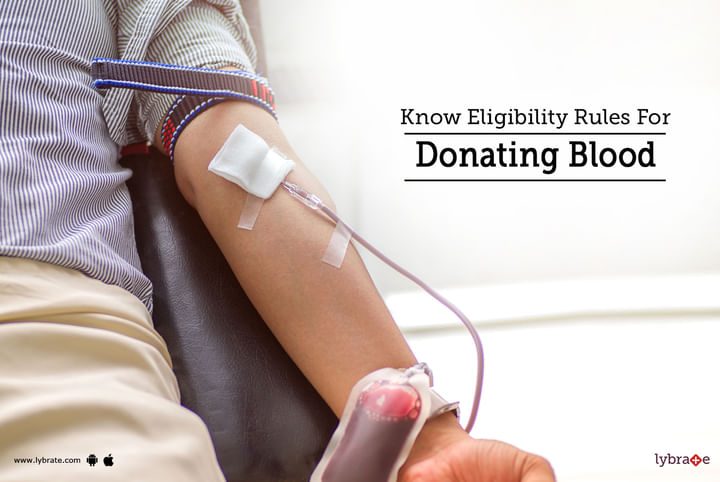Know Eligibility Rules For Donating Blood
Blood donation is a procedure carried out for the noble cause of helping patients and saving lives. As the healthy donor's blood is transfused into the patient, it gives them a new life. That said, the donor has to fulfill a few criteria to be eligible to donate blood.
Eligibility
While any healthy adult of any gender can donate blood, it is advised for males to donate once every three months and for females to donate once every four months. Some of the other criteria are-
-
Age
Any person in the age group of 18 to 65 years can donate blood depending on other factors.
-
Weight
A donor should be at least weigh 45 kilograms in order to be eligible.
-
Pulse
The temperature and pulse of the donor should be normal during the time of blood donation.
-
Hemoglobin
Hemoglobin in the blood should be at least 12.5 grams otherwise the donor stands ineligible.
-
Childbirth
A female donor should have delivered at least 1 year ago and stopped lactation.
-
Blood pressure
Ensuring that the systolic and diastolic pressures are within normal limits is a must.
-
Malaria
One should not have malarial symptoms and not have been treated for the same in the last 3 months.
-
Tattoo
A person should not have had a tattoo in the past 12 months.
-
Immunization and Vaccination
A donor should not have had shots for Cholera, Typhoid, Diphtheria, Tetanus, or Plague in the last 15 days.
-
Cancer
A person should be checked for cancer and should not have any signs of cancer in the body.
-
Infection
There should not be Hepatitis B, C, Tuberculosis, Leprosy, or HIV infection in the body.
-
Diseases
A person should not have Epilepsy, Bleeding disorders, Sickle Cell, or Thalassemia.
-
Drugs
One cannot donate blood if injected intravenously ever. It may cause risk to the recipient.
-
Heart issues
A person willing to donate cannot have any heart disease.
-
Diabetes
People on oral drugs or dieting to control diabetes can donate blood while patients with insulin injections cannot.
Strictly Prohibited
-
Ones who have been tested HIV positive.
-
People suffering from cardiac problems, hypertension, cancer, epilepsy, or kidney ailments.
-
Donors who have consumed alcohol in the past 24 hours.
-
Ones with a major dental procedure done in the last one month.
-
Women with miscarriages in the past 6 months.



+1.svg)
